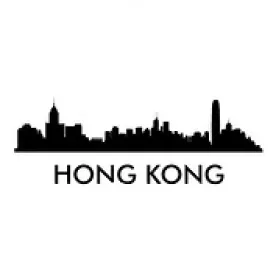This article considers the landmark case by the Hong Kong Court of First Instance, in Joint and Several Liquidators of CEFC Shanghai International Group Ltd [2020] HKCFI 167. It is a significant step that the Hong Kong Courts have taken, enhancing cross-border insolvency cooperation between Mainland China and Hong Kong.
Facts
The investment holding company CEFC Shanghai International Group Ltd (“CEFC“), incorporated in Mainland China, went into insolvent liquidation pursuant to an order from Shanghai Intermediate People’s Court and administrators (similar to liquidators in Hong Kong) were appointed. CEFC has a substantial amount of assets in Hong Kong, which includes a claim against its Hong Kong subsidiary, Shanghai Huaxin Group (Hong Kong) Limited (“SHG“), amounting to HK$7.2 billion (“SHG Receivable“).
The administrators discovered that prior to liquidation, a creditor of CEFC had obtained a garnishee order nisi against CEFC in Hong Kong for approximately Euro 29 million in respect of the SHG Receivable.
To prevent the creditor from obtaining a garnishee order absolute, the appointed administrators made an urgent application to the Hong Kong Court for recognition of their appointment and judicial assistance at common law.
Outcome
Mr. Justice Harris of the Hong Kong Court of First Instance granted the recognition and assistance to the Mainland administrators and the garnishee proceedings were successfully stayed.
Reasoning
The Court laid down the following principles for allowing the recognition of foreign insolvency proceedings and assistance at common law:
-
The foreign insolvency proceedings must be collective insolvency proceedings opening in the company’s country of incorporation.
-
If the proceedings are such, the Hong Kong Court will offer assistance to foreign liquidators by applying Hong Kong insolvency law. However, it will not grant a foreign liquidator all the powers available to a liquidator appointed by the Court under the Companies (Winding Up and Miscellaneous Provisions) Ordinance (Cap. 32).
-
The Court reiterated that the common law power of assistance is subject to the following limitations:
(a) it should not enable foreign liquidators to do something that they could not do under the law by which they were appointed;
(b) it is available only when it is necessary for the performance of the foreign liquidators’ functions; and
(c) an order granting assistance must be consistent with the substantive law and public policy of the assisting court.
The Court was satisfied that the application by the foreign administrators met the above criteria and it was just to make an order of recognition and assistance to the Mainland administrators.
Mr. Justice Harris determined that because Mainland insolvency law corresponded to Hong Kong insolvency law in terms of the powers and duties of liquidators as well as the imposition of stay on creditor claims, that the proceedings in Mainland China were collective insolvency proceedings. But he also remarked that if Mainland administrators required a greater level of assistance that would be decided on a case by case basis and the outcome would depend on the extent to which the Court is satisfied that “the Mainland system promotes a unitary approach to transnational insolvencies“.
In terms of the garnishee order, the Court held that:
-
If a creditor commences garnishee proceedings in Hong Kong before the commencement of the foreign insolvency proceedings, the garnishee proceedings should be terminated, regardless of whether the creditor had obtained a garnishee order nisi before or after the grant of the order; and
-
Even if a creditor has obtained a garnishee order nisi in Hong Kong before the commencement of the foreign insolvency proceedings, the Court retains a discretion to decline to make a garnishee order absolute.
Comment
Following this decision we expect similar applications from Mainland administrators to obtain recognition and assistance from the Hong Kong Court in the future, but it remains to be seen whether the Mainland courts will allow reciprocal recognition to Hong Kong liquidators after the CEFC judgment.




 />i
/>i

